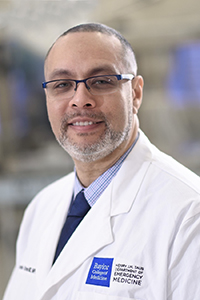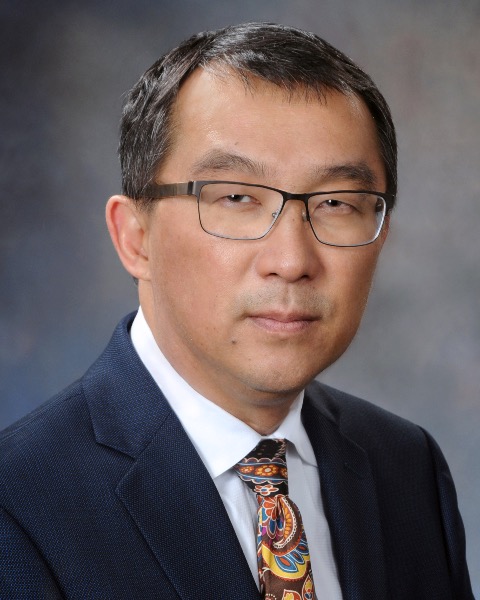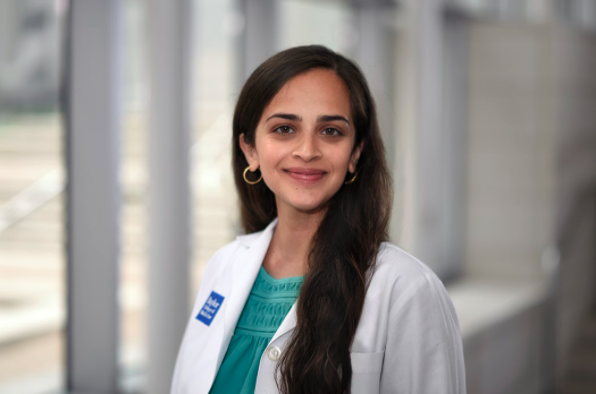The Hidden Costs of the Minority Tax in Academic Emergency Medicine: Challenges and Pathways Forward (ADIEM Sponsored)
The Minority Tax is a nuanced burden disproportionately shouldered by minoritized individuals in academic medicine, encompassing additional responsibilities and challenges not typically faced by their majority peers. In the rapidly evolving landscape of academic emergency medicine, the minority tax remains a subtle yet pervasive challenge. Understanding this concept is crucial for fostering inclusivity and ensuring equitable career progression.
This didactic delves deep into the multifaceted nature of the Minority Tax, highlighting its subcategories such as mentorship, gratitude, isolation, clinical assignments, and diversity efforts. Through a blend of evidence-based insights and interactive case studies in a small group format, attendees will gain a comprehensive understanding of the Minority Tax's implications on physician well-being, career trajectory, and institutional dynamics. By the end of this session, participants will be equipped with actionable strategies to recognize, address, and mitigate the effects of the Minority Tax, fostering a more inclusive and supportive environment in academic emergency medicine departments. These discussions will be led and facilitated by content experts in the subject matter, who have both lived experience and have recently completed a qualitative study on the Minority Tax in Academic Emergency Medicine.
Presenters:
- Edgardo Ordonez, MD, MPH
- Moises Gallegos, MD, MPH
- Dalia Owda, MD
- Dick Kuo, MD
- Anita N. Chary, MD PhD
- Ynhi Thomas, MD, MPH, MSc
- Adedoyin Adesina, MD
- Melanie F. Molina, MD, MAS
- Annika Bhananker
-

Edgardo Ordonez
Immediate Past President
Dr. Ordonez received his medical and public health degrees from the UMDNJ- New Jersey Medical School and School of Public Health. He then completed a combined emergency medicine and internal medicine residency at Christiana Care in Newark, Delaware. After completion of residency, Dr. Ordonez obtained an academic appointment at Baylor College of Medicine (BCM) in Houston, TX, where he has been in practice for 7 years. He currently practices both emergency medicine and internal medicine and has several leadership roles within the college and health system. He is an assistant program director of the BCM EM residency, Medical Director of Utilization Management at Ben Taub Hospital, and is on the BCM Admissions Committee. His interests include diversity, inclusion, equity, & social justice, healthcare delivery, social determinants of health, and mentorship. -

Moises Gallegos, MD, MPH
Member-at-Large
Stanford Department of Emergency Medicine
Dr. Moises Gallegos attended Harvard College where he studied neurobiology and topics in mind, brain, and behavior. He earned his MD from Stanford School of Medicine and concurrently earned a master's in Public Health from Harvard T.H. Chan School of Public Health. He completed his residency and was Chief Resident at Baylor College of Medicine while working at Ben Taub General Hospital. He began his academic career as an Assistant Professor in the Henry J.N. Taub Department of Emergency Medicine (EM) at Ben Taub and rejoined the Stanford Department of EM in 2019 as a Clinical Assistant Professor. He is the Clerkship Director for EMED301A, the required EM rotation. Dr. Gallegos is currently completing coursework to obtain his Master of Education in the Health Professions from Johns Hopkins University School of Education.
-

Dalia Owda, MD
Yale University School of Medicine
Dalia Owda, MD is an emergency medicine physician and current postdoctoral fellow in the National Clinician Scholars Program (NCSP) at Yale University School of Medicine / Yale-New Haven Health System. Prior to fellowship, Dr. Owda completed her emergency medicine residency at Beaumont Health System in Royal Oak, Michigan, where she also served as Chief Resident in her final year. During her time in residency, Dr. Owda became a leader within the DEI space, creating a DEI Committee and mentorship program for URM medical students, which led to her receiving a top award for Excellence in Diversity, Equity and Inclusion. Currently, Dr. Owda focuses her research on advancing workforce diversity within academic medicine, with specific focus on the expriences of URM trainees and faculty, as well as evaluating disparities of emergency service utilization. -

Dick Kuo, MD
Baylor College of Medicine
Dr Kuo currently serves as Professor and Chair of the Henry JN Taub Department of Emergency Medicine at Baylor College of Medicine. He received his BA from Johns Hopkins University and his MD from the University of Texas Southwestern Medical School. After completing residency at the University of Maryland he continued on as faculty eventually serving as Medical Director and Director of Faculty Development. He was recruited in 2009 to join Baylor College of Medicine to help form a new EM program based at Ben Taub Hospital in his hometown of Houston, Texas. In 2017 the Henry JN Taub Deaprtment of Emergency Medicine was established and Dr Kuo was named inaugural chair.
-

Anita N. Chary, MD, PhD
Baylor College of Medicine
Anita Chary, MD PhD is a medical anthropologist and emergency physician and Assistant Professor at Baylor College of Medicine (Departments of Emergency Medicine and Medicine, Section of Health Services Research). She graduated summa cum laude from the University of Illinois in Urbana-Champaign, received her medical and doctoral degrees (MD PhD, Anthropology) from Washington University in St. Louis, and served as chief resident of the Harvard Affiliated Emergency Medicine Residency. Broadly, her research focuses on social determinants of health and care of vulnerable populations. She has an extensive background in global healthcare delivery and has expertise in qualitative methods and social theories of health equity. Dr. Chary's domestic research focuses on improving the care of geriatric patients in the ED. She currently serves as the Research Committee Chair of SAEM Academy of Diversity & Inclusion in Emergency Medicine and as an Executive Comittee Member-at-Large for the SAEM Academy of Geriatric Emergency Medicine. She is an Associate Director of the Medical Scientist Training Program (MD/PhD) at Baylor College of Medicine and an Adjunct Assistant Professor of Anthropology at Rice University.
-

Ynhi Thomas, MD, MPH, MSc
Baylor College of Medicine
Dr. Ynhi Thomas serves as an Assistant Professor of Emergency Medicine, the Assistant Medical Director for the Ben Taub Emergency Center, and the Assistant Director for Health Equity and Community Engagement for the Henry J.N. Taub Department of Emergency Medicine. Her multidisciplinary work is at the intersection of behavioral health, sex and gender medicine, and health equity. Her clinical training extended beyond the traditional scope, including fellowship training in Emergency Department (ED) leadership, operations, quality improvement, and health system development.
She has pioneered initiatives aimed at enhancing patient care and safety, specifically targeting our hospital’s behavioral health population. Among these are the development of a Behavioral Health Sorting Tool, influenced by trauma activation codes, that categorizes patient acuity based on presenting signs and symptoms. Recognizing the need for specialized care for patients with acute agitation, she also instituted a multidisciplinary Crisis Intervention Team, consisting of Emergency Medicine providers, psychiatry specialists, nursing staff, and security personnel. Further, she has formulated guidelines for a structured, team-based approach to the use of physical restraints, delineating clear roles and responsibilities to minimize risks to patients and staff. These endeavors have fortified her capabilities in team management and operational planning within the high-stakes, fast-paced environment of the ED.
As a physician-scientist, Dr. Thomas' contributions have been multifaceted, encompassing sex and gender medicine, healthcare inequities, interprofessional communication, team dynamics, and educational material development. Most recently, her focus has been directed towards behavioral health-centric studies, including investigations into sex and racial disparities in the use of physical restraints, as well as gender-specific variations in mental health screenings and post-injury trauma outcomes.
Dr. Thomas completed her Emergency Medicine residency and fellowship training in Leadership, Quality, and Administration at Baylor College of Medicine. She obtained MD at the University of Alabama School of Medicine and her MPH at the University of Alabama School of Public Health. She also has a Master of Science in Medical Anthropology from Oxford University. In her spare time, she enjoys spending time with her husband and two sons. -

Adedoyin Adesina, MD
Baylor College of Medicine
Dr. Adedoyin is an Assistant Professor of Emergency Medicine at Baylor Color of Medicine and an Associate Clerkship Director. She is committed to promoting diversity, equity, and inclusion, and addressing health disparities and social determinants of health. She currently serves as a Diversity Inclusion and Equity Ambassador, Chair of education committee for Academy for Diversity in Emergency Medicine(ADIEM) well as several Undergraduate Medical Education committees. She’s been recognized for her outstanding contribution to academia which earned her accolades as the recipient of Norton Fulbright Faculty Excellence Award in Teaching and Evaluation and the ADIEMs Visionary Educator Award
Her primary research interests revolve around the intersection of health disparities and medical education with a particular focus on tackling linguistic barriers, enhancing cross-cultural communication, and advancing recruitment and engagement strategies for the EM work. She has received several seed grants for research in these areas. -

Melanie F. Molina, MD, MAS
University of California, San Francisco
Dr. Melanie Molina, MD, MAS is an Assistant Professor of Emergency Medicine and Affiliate Faculty of the Philip R. Lee Institute for Health Policy Studies at the University of California, San Francisco (UCSF). Prior to her faculty position, Dr. Molina completed a postdoctoral fellowship through the National Clinician Scholars Program at UCSF and a Masters in Advanced Studies through UCSF’s Training in Clinical Research program. During that time, she investigated and published work elucidating COVID-19-related health disparities and ways to leverage technology to integrate social needs screening/linkage to resources into clinical care. Dr. Molina’s own experiences overcoming childhood adversity sparked her desire to work toward reducing health disparities and continue to drive her advocacy work.
-

Annika Bhananker
Center for Innovations in Quality, Effectiveness, and Safety
Annika Bhananker is a Research Coordinator at the VA Center for Quality, Effectiveness and Safety in Houston, Texas. She is an undergraduate student at Rice University majoring in Anthropology. She is interested in pursuing emergency medicine and serves as a volunteer EMT for Rice EMS.
